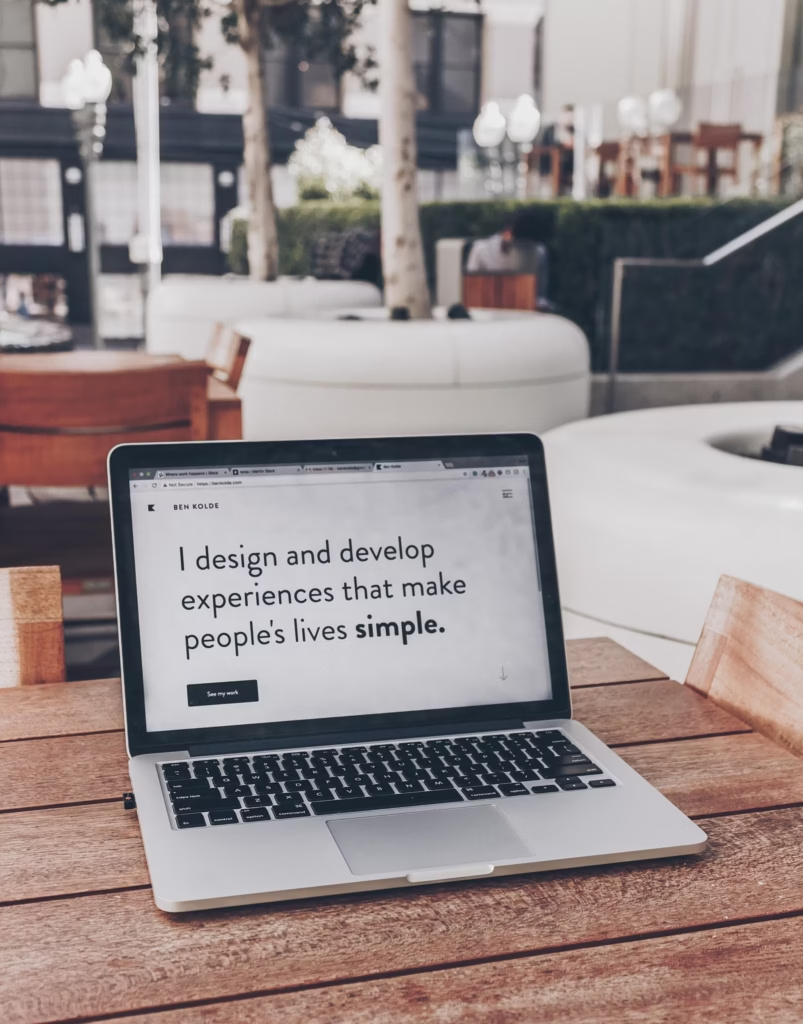Overview
The Inclusive Commons is a unique human rights organization that combines the different but complementary approaches of public interest law and inclusive design to address the complex challenge of achieving equity within the full spectrum of human differences.
Our goal is to address gaps in complex areas of equity and inclusion of groups that have been historically marginalized, including people with disabilities. We do this by leveraging legal action and policy advocacy to create the conditions for inclusive design driven by the community.
History and Governance
The Inclusive Design Research Centre [IDRC] of the Ontario College of Arts and Design University and Ross & McBride, LLP have developed a collaboration known as The Inclusive Commons (TIC) to combine their community engagement, research, inclusive design, policy consultation/ development, and legal skills, which are critical to advancing disability-related justice, access to justice, equity, and inclusion.
TIC is operated by an interim volunteer Board of Directors, including representatives from outside of the two founding organizations, whose duty is to serve the best interests of the TIC community. IDRC and Ross &McBride, LLP lend staff and in-kind and/or financial resources to operate TIC.
RELATED: TIC is not a subsidiary of either IDRC and/or Ross &McBride, LLP.
Vision and Values
The complex challenge of achieving cutting-edge equity and inclusion requires a diversity of approaches. The Inclusive Commons is adaptable and responsive to emerging opportunities that call for a combination of community engagement, research, inclusive design, policy consultation/development and legal approaches. TIC is guided by a core commitment to:

Inclusive
Work across sectors to break down silos and enable full participation of marginalized people with lived experience in human rights litigation, policy development, research, and inclusive design.

Tactically Optimistic
Embrace the opportunities and challenges brought about by disruptive changes in the built environment, systems, technology, institutions and culture that constantly reshape the space for social, economic, and cultural inclusion.

Adding, not Duplicating
Seek and prioritize work on emerging trends, challenges and practices that are not already being addressed through existing policy frameworks, litigation. legislation/regulations and/or practices.

What We Do
The Inclusive Commons takes a unique approach, based on the fusion of competencies from inclusive design and human rights law. This allows us to mobilize the relevant skills and tactics – from research, inclusive design and policy consultation, and development, legislative reform, and litigation, with the active participation of those who experience marginalization,


Community Engagement
TIC will not claim to represent or speak on behalf of communities of marginalized persons. It will nonetheless include members of these communities in its governance/operations and more importantly listen to the wants and needs of representatives of these communities through an organized community engagement process, and apply what is learned to the prioritization of its work to be performed and in its research.

Research
The inclusive design process begins with consultation and adds research so as to confirm the most effective means of restructuring society to be more inclusive.

Inclusive Design
Design that considers the full range of human diversity concerning ability, language, culture, gender, age, and other forms of human difference.
Inclusive design has three dimensions: recognizing diversity and uniqueness; inclusive processes and tools; and broader beneficial impact.

Policy Consulting / Development
By bringing together the complementary fields of inclusive design and human rights law, TIC will be able to make a business case, identify public and private standards and guidelines and/or provide draft legislation, regulations and policy proposals that advance the visions and values of TIC. This consultative role is assumed to be distinct from a partisan political or advocacy role.

Precedent Setting Litigation
Sometimes business, government, and social institutions are resistant to inclusion. Cutting-edge systemic litigation can advance public awareness, identify needs and barriers that were not previously well recognized/acknowledged, and give institutions and bureaucracies the push they often need to advance the vision and values of TIC.

Education
The goal of inclusion is advanced by expanding, diversifying and addressing succession amongst those with inclusion expertise.

International
TIC may provide leadership, but also benefit from the leadership of others, in all the functions it has identified for itself. TIC will research, create policies, educate, and litigate at provincial, national, and international levels, including seeking to hold Canada accountable for complying with its international obligations.
ProJECTS
Current Projects of TIC
We are currently taking action to ensure accessible necessities for all, including:
✓ ACCESSIBLE housinG
✓ digital technology
✓ inclusive education



Our Board of Directors

Burt Perrin
Burt Perrin served as the founding President of ARCH (Advocacy Resource Centre for the Handicapped), and more recently as a member of the Founding Board of TIC (The Inclusive Commons). Now based in France, Burt is recognised as a leader in the international evaluation community, serving for example as Secretary-General of the European Evaluation Society, and with numerous publications and presentations around the world. Burt has consulted widely, providing guidance to international organisations, governments, and NGOs in the areas of planning and evaluation.

Stephanie Chipeur
Stephanie holds the Azrieli Accelerator Professorship in Law & Disability Policy at the University of Calgary’s Faculty of Law and School of Public Policy. Stephanie completed her JD at the University of Toronto Faculty of Law and is a member of the Law Society of Ontario. During her graduate studies at McGill University, Stephanie was injured in a car accident and became a wheelchair user. She brings lived experience to her research on disability law and policy.

Jutta Treviranus
Jutta Treviranus is the Director of the Inclusive Design Research Centre (IDRC) and professor at OCAD University. Jutta established the IDRC in 1993 to proactively ensure that our digitally transformed and globally connected society is designed inclusively, with and by people that experience the greatest barriers. She established a graduate program in inclusive design at OCAD University and developed an inclusive co-design methodology that has been adopted by organizations internationally.

David Baker
David Baker is the founding Executive Director of ARCH, which is a disability law clinic that specializes in litigating precedent-setting cases and engaging in law reform as counsel to the leadership of the disabled community. He has been in private practice for 25 years, currently acting as counsel to Ross & McBride. He currently confines his practice to human rights, Charter, and class action proceedings, with inclusion being a common theme in all cases. His cases have been before the Supreme Court of Canada more than 20 times. Honors include and honorary doctorate from Trinity College at the University of Toronto, the Law Society medal, Honorary Membership in the Council of Canadians with Disabilities, and the PUSH – Ontario Human Rights Award. He taught Access to Justice at the University of Toronto Law School. Access and inclusion have been the two overriding themes that have held constant throughout his legal career.
Litigation and the Inclusion of Persons with Disabilities


Litigation has opened opportunities for persons with disabilities who historically had been excluded. Such cases have set precedents that created opportunities for many more than just the litigants. Many cases have resulted in accessibility standards being established that have opened doors and leveled playing fields.
One example is in the area of education. No group within society has been excluded so pervasively, yet arguably no group needs an education more. Cases have challenged the assumption that 1 type of education fits all; as well as the misconception that some persons with disabilities cannot benefit from an education. At the post secondary level litigation has resulted in financial support for disability accommodations, equitable admissions criteria and student financial assistance. Much remains to be done.
Deaf patients were formerly hindered by the inability to communicate with their care providers throughout Canada’s vaunted healthcare system. Litigation resulted in the requirement that all health care services include an effective means of communication with them, a precedent that has now been followed within the justice system and elsewhere.
Strategic litigation has also prevented the creation of new barriers. Initiating litigation resulted in a commitment to install elevators in new subway stations and during the renovation of existing ones. When VIA Rail proposed introducing a new generation of inaccessible rail cars, litigation resulted in the direction to retrofit the cars purchased to make them fully accessible and available on all routes. Again while much remains to be done, there has been progress towards inclusive design of all modes of transportation.
Technology is an area where considerable expertise and research are required to determine whether and how inclusion can be feasibly accomplished. When contracting for new website software the federal government said accessibility was to be a consideration, however, its websites did not measure up to internationally recognized inclusionary standards. The courts decided good intentions were not good enough when the means of full accessibility was readily available and imposed compliance with recognized access standards on governments. Litigation has just started to make information and communication technology [“ICT”] a means of opening previously unimagined opportunities for persons with disabilities.
TIC and Litigation

TIC links the leadership of the disabled community with disability researchers to identify barriers that can be removed by the adoption of legally imposed standards or through litigation.
Recently a TIC Board member, Jutta Treviranus, chaired the Accessible Standards Canada Advisory Committee composed of members with disabilities, technology experts, and representatives of government, trade unions and industry, including major technology firms, that resulted in the adoption of Accessibility Requirements for ICT Products and Services can-asc-en301549-20240226-v02-en-aoda.pdf. Despite their name, the “Requirements” are actually advisory guidelines that meet the access expectations and needs of persons with disabilities and the need of technology users for standards that ensure feasibility and predictability.
As in the accessible website case, recognized standards can establish goals for inclusion litigation. TIC volunteers have a proven track record in enlisting the involvement and contributions of the most highly qualified experts, including academics working in related fields of study.
TIC provides a mechanism for bringing together those with the need for inclusion and those with expertise in documenting and developing the means of redressing barriers to inclusion. Frequently persons with disabilities perform both roles, both of which are essential to making meaningful inclusion possible.
Case Development
TIC has established for itself the goal of [1] identifying potential clients willing to pursue [2] litigation goals that are broadly recognized as meaningful for achieving the inclusion of persons with disabilities; [3] testing the feasibility of those goals with recognized researchers, who may subsequently agree to act as expert witnesses and [4] preliminarily identify a legal strategy for getting the issue before a court. Client identification comes from communication with representatives of the disabled community concerning their inclusionary wants and needs. Meaningful and feasible goals come from independent documentation of these wants and needs, and identification of the means of removing barriers to their achievement. Developing a legal strategy involves a person with specialized legal expertise matching the wants and needs of the client with available expertise and determining whether an arguable case exists that can be litigated.
TIC has recruited talented volunteer lawyers, many of whom are also leaders within the disabled community, to implement this case development process, including the identification of potential clients and experts, and preparation of cases for presentation to the litigators who would be carrying the case forward.
Dickson Circle
Canada’s late Chief Justice Brian Dickson recognized the importance of worthy disability cases coming before the courts. He also recognized the enormous access to justice barriers facing those with worthy cases to litigate. Before his death he agreed that his name could be used to help achieve access to justice in such cases. Ten lawyers annually were to be asked to become members of the Dickson Circle, each of whom would take on a disability case pro bono [ie. without cost to the client].
TIC has prioritized inclusion cases because, for persons with disabilities, that is where the most acute access to justice barriers exist and the need is perceived as being the greatest.
For federal Charter cases the Court Challenges Program exists, but nothing comparable exists to help defray the cost of provincial or private sector cases. TIC is endeavouring to help counsel manage costs by recruiting volunteer case development lawyers and expert
witnesses. Cases of this type tend to reward successful litigants with public interest cost awards, to which pro bono counsel would be entitled. In the event an appeal must be argued, the member is not obligated to carry the case forward, however if the member chooses to do so it would qualify as membership for another year. Where it is or should be an appeal, and the member who handled the case at the trial or application stage is not going to handle the appeal, the appeal is then offered to the next prospective Dickson Circle member.
TIC volunteers agree to assume responsibility of the case development process that enables its Dickson Circle Committee to match pre-eminent pro bono counsel with worthy cases of importance to the inclusion of persons with disabilities. The Dickson Circle Committee consists of The Honourable Ian Binnie, Earl Cherniak and Bill Carter. TIC board members David Baker serves as secretary to the Committee, and Professor Stephanie Chipeur currently coordinates case development. The Committee invites the most qualified counsel to become members of the Dickson Circle. Those invited can meet with the proposed client, as well as with the volunteer lawyer[s] and experts responsible for the case’s development, before deciding whether to accept Dickson Circle membership and enter a pro bono retainer with the client.
It is recognized that such cases can be resource intensive, even though pro bono experts are matched with cases, and rarely settle at a preliminary stage because they may set precedents that open inclusive opportunities for many others. Membership therefore involves making a serious commitment
How you can help
The short-term goal is for TIC is to receive funds from research and policy projects as well as from donations, and to hire staff to assist in carrying out the main functions of TIC.
TIC welcomes those who wish to volunteer their time to support TIC’s goals and functions. Specialized volunteer leadership and expertise is welcomed to serve in an advisory and operational capacity.
If you wish to volunteer your time or make a donation to TIC. please contact Luz Sucilan at [email protected]
Please note that TIC is applying for CRA charitable status and is, therefore, not able to issue a receipt for donations at this time.
